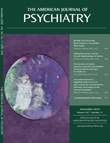The Genetics of Autism Spectrum Disorders and Related Neuropsychiatric Disorders in Childhood
Abstract
Objective:
Autism spectrum disorders are considered to be among the most heritable mental disorders, a notion based on surprisingly sparse data from small clinical studies. Population-based studies of the heritability of other neuropsychiatric disorders and comorbidities among them have also been sparse. The authors sought to address both of these issues.
Method:
Parents of all Swedish 9- and 12-year-old twin pairs born between 1992 and 2000 (N=10,895) were interviewed regarding autism spectrum disorders and associated conditions (response rate, 80%). Concordance rates and structural equation modeling were used for evaluating causes for familial aggregation and overlap between conditions.
Results:
Monozygotic twins had higher concordance rates than dizygotic twins for autism spectrum disorders, attention deficit hyperactivity disorder (ADHD), developmental coordination disorder, and tic disorder. Genetic effects accounted for 80% (95% CI=29-91) of the variation in liability for autism spectrum disorders, 79% (95% CI=61-88) for ADHD, 70% (95% CI=35-83) for developmental coordination disorder, and 56% (95% CI=37-68) for tic disorder. Among monozygotic co-twins of children with autism spectrum disorders, the probability of having a diagnosis of ADHD was 44%, compared with 15% for dizygotic co-twins. Differences in cross-disorder effects between monozygotic and dizygotic twins were observed for most other comorbidities, and substantial proportions of the genetic variance for autism spectrum disorders was shared with each of the other disorders.
Conclusions:
Different neuropsychiatric disorders seem to have a common genetic etiology, suggesting caution in the use of diagnostic entities and proband status in efforts to uncover genes predisposing to autism spectrum disorders.



